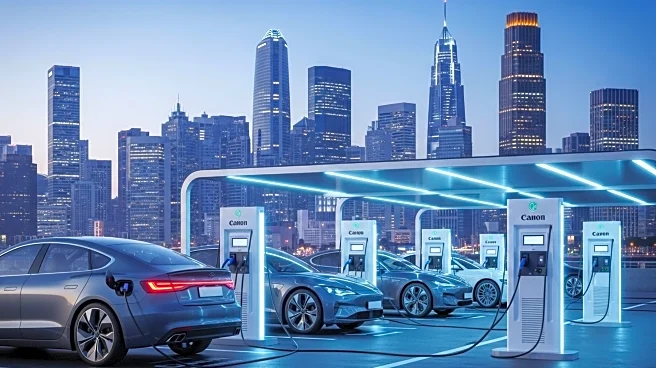What is the story about?
What's Happening?
Automakers are providing substantial discounts on electric vehicles (EVs) as the $7,500 federal tax credit is set to expire on September 30, 2025. These discounts, which can exceed $10,000, are driving a selloff as consumers rush to take advantage of the savings. Companies like Honda are offering up to $19,000 off MSRP on certain models, combining dealer lease cash bonuses, captive lease cash, loyalty or conquest bonuses, and the federal tax credit. The aggressive promotions have led to a significant reduction in EV inventory, with supply dropping from 99 days in June to 59 days in August.
Why It's Important?
The expiration of the federal tax credit is a critical moment for the EV market, as it has been a significant driver of sales. Automakers are using this opportunity to clear inventory and boost sales figures before the credit ends. The discounts are likely to impact the market dynamics, potentially leading to a temporary surge in EV sales. However, as the credit expires, there may be a slowdown in sales, affecting automakers' strategies and financial performance. The situation highlights the importance of government incentives in promoting EV adoption and the potential challenges the industry faces without them.
What's Next?
As the tax credit expiration approaches, automakers may continue to offer aggressive discounts to maintain sales momentum. Once the credit ends, companies like GM anticipate a slowdown in EV sales, which could take months for the market to adjust. Automakers will need to explore new strategies to sustain demand, possibly focusing on technological advancements, cost reductions, or alternative incentives.
Beyond the Headlines
The selloff and inventory reduction underscore the volatility of the EV market and the reliance on government incentives. The situation may prompt discussions on the future of EV subsidies and the need for sustainable market growth strategies.
















